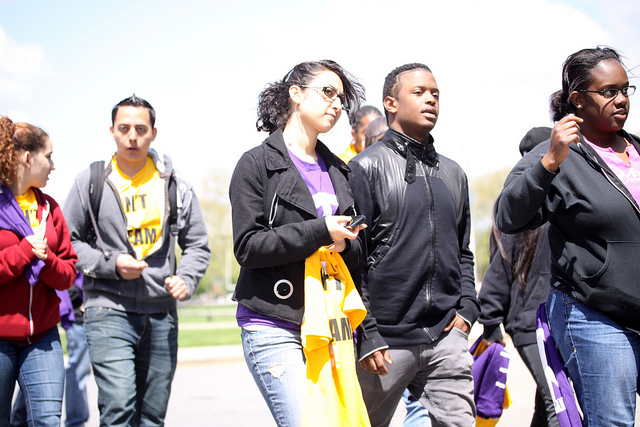Three Alternative Educational Systems Produced by Reform Discontent

Despite efforts to reform public education by addressing a number of problematic areas in the system, many with an interest in education have been frustrated with the direction reforms have taken and the time it has taken to make any progress. As a result, proposals for alternative school models have been proposed, and many have been initiated. Disillusionment with the school system and its lack of flexibility can be traced to the 1950s. Milton Friedman, a renowned economist, maintained that schools would work much better if they operated in a free market environment. Friedman believed requiring students to attend the nearest local school was problematic. In this environment, there was no competition among schools and therefore no motivation for one school to do any better than the next school. The only alternative was private school, which many students could not afford. Friedman advocated that school choice should not be limited only to those who could afford it.
The push for greater school choice surfaced again in the 1970s. If schools were going to be desegregated, as required by law, students would need to choose schools outside their local areas. A number of school models emerged in the 1970s that offered families choice beyond the traditional neighborhood school attendance.
Since then, a number of school models have cropped up from discontent around stagnated reform. Three of the biggest alternative systems are:
1. Magnet Schools
Magnet schools were established to attract students to attend a school other than their assigned neighborhood school. Not only did these schools offer a distinctive curriculum; many also offered a first-rate education based on innovative approaches to teaching. Given these educational opportunities, many parents were persuaded to choose magnet schools for their children. There are thousands of magnet schools across the United States. They tend to be more expensive than their traditional public school counterparts to run; however, research indicates they also tend to be more effective. Magnet schools have attracted over 2 million students since their inception. They’ve had a positive influence on desegregation in some school districts, which was an additional goal for the initiation of magnet schools. But in places with deep racial segregation, they haven’t helped with desegregation.
2. Open Enrollment
Another school model that promotes the concept of school choice is open enrollment, enabling students to attend any public school that has vacancies. Minnesota was the first state to introduce the concept of open enrollment in 1988 and was closely followed by a number of additional states. Today, the majority of American states have legislation allowing open enrollment. If school choice is allowed to proceed along its current trajectory, the neighborhood school could very well become a model of the past, or at least be radically altered.
3. Charter Schools
Charter schools operate based on a contract between a school district and the party planning to operate the institution. The contract is in effect for a certain time. If the school performs well, the contract is renewed. Charter schools tend to have some flexibility when it comes to state regulations; hey may not have to follow all regulations required of traditional schools in the state. Most states have student performance expectations that charter schools are required to meet to maintain the charter. Charter schools share other characteristics: they don’t require assessment to gain admission, they are nonsectarian, financial support is in line with student quantity, and existing public schools can adapt to become charter schools.
In 1991, Minnesota became the first state to establish legislation that supported charter schools. While most states have legislation to guide the establishment of charter schools, no charter school legislation exists in Alabama, Kentucky, Maine, Mississippi, Montana, Nebraska, North and South Dakota, Vermont, Washington, and West Virginia. Even among states that have charter school laws, the number of charters available among the states differs. Other restrictions in terms of the types of charter schools may also exist. For example, some states will not extend charters to virtual charter schools. Still, charter schools currently represent one of the most popular school choice models, with over 4,000 schools nation-wide. Charter schools are the most viable rival to the public school model today.
Charter school models differ from traditional schools within the district, although in many states the district has authority over the charter school. Because charter school initiatives haven’t occurred in all states, it’s difficult to generalize or standardize the entire charter school movement. So charter schools must be discussed in the context of a state and local school district. And although some states introduced strong charter legislation, facilitating more autonomy, legislation in other states was weaker and resulted in less autonomy. “Strong” charter legislation refers to significant levels of charter school self-governance, subject only to appraisals and legalities. “Weak” charter legislation describes situations where school boards have significant control throughout the chartering process.
There are also funding implications with regard to a school’s being under strong or weak charter legislation. Charter schools in states with strong charter legislation receive state money, regardless of the group wishing to establish a charter school (e.g., parents, community organization, or a religious group). In contrast, a school established under weak charter legislation must be approved by a local school district, which may not be motivated to support a school that differs drastically from traditional schools in the district.





